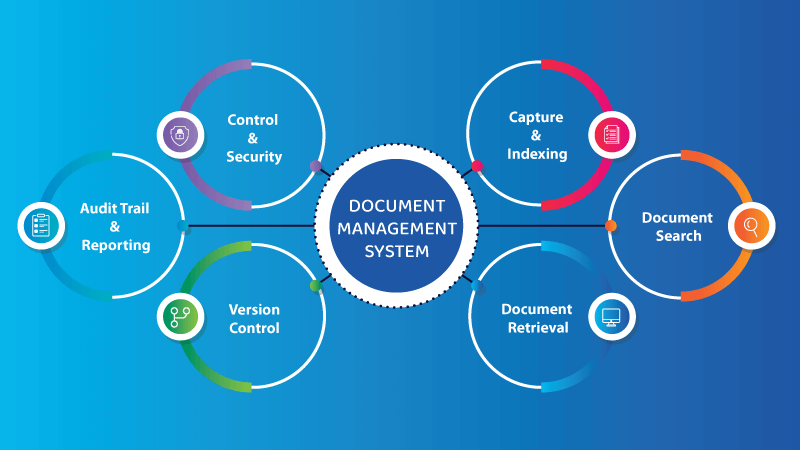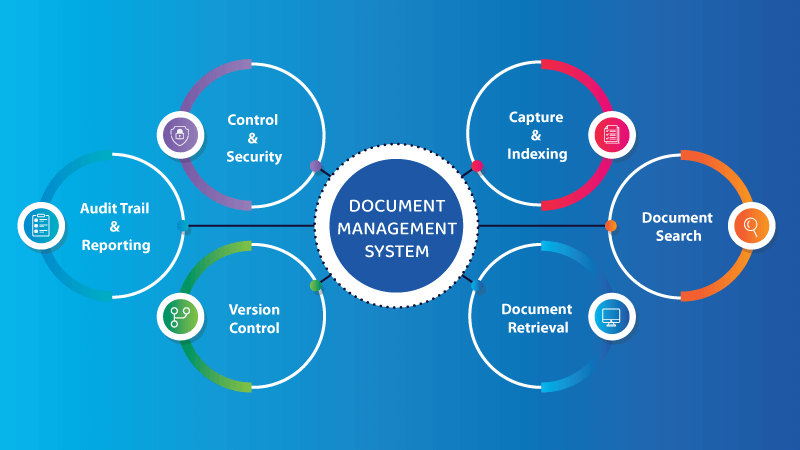In today’s fast-paced digital world, businesses are generating and handling more documents than ever before—contracts, invoices, employee records, client communications, compliance files, and more. Managing all this information manually or through scattered storage solutions can lead to inefficiencies, errors, and security risks. That’s where a Document Management System (DMS) comes in.

What is a Document Management System?
A Document Management System is a software solution designed to store, organize, secure, and track electronic documents. It eliminates paper-based chaos and provides a centralized platform for document handling—making information easily searchable and accessible to the right people.
Key Features of a DMS
A robust DMS typically offers:
Centralized Storage: Keep all documents in one secure digital repository.
Search & Retrieval: Find documents instantly using keywords, metadata, or filters.
Version Control: Track changes and maintain updated versions without confusion.
Access Control: Assign permissions to ensure only authorized users can view or edit files.
Workflow Automation: Streamline approvals, reviews, and compliance processes.
Audit Trails: Maintain logs for compliance and security tracking.
Benefits of Using a DMS
Improved Productivity – Employees spend less time searching for files and more time focusing on important tasks.
Enhanced Security – Protect sensitive information with encryption, access restrictions, and secure backups.
Cost Savings – Reduce expenses on printing, paper, and physical storage.
Regulatory Compliance – Easily meet industry standards like GDPR, HIPAA, or ISO with proper documentation tracking.
Collaboration – Team members can access and work on documents simultaneously from anywhere.
Disaster Recovery – Cloud-based DMS solutions ensure documents are safe even in case of hardware failure.
Who Can Benefit from a DMS?
Small Businesses: For organized record-keeping and efficiency.
Enterprises: To handle massive volumes of data and ensure compliance.
Legal Firms: For secure handling of case files and contracts.
Healthcare Providers: For patient records management under strict regulations.
Educational Institutions: To manage student data, reports, and administrative documents.
Future of Document Management
With AI and automation, modern DMS platforms are becoming smarter—offering features like automated document categorization, predictive search, and even intelligent compliance alerts. Cloud integration ensures seamless remote access, making DMS an essential tool for hybrid and remote work environments.


Comments (0)
No comments yet. Be the first to comment!